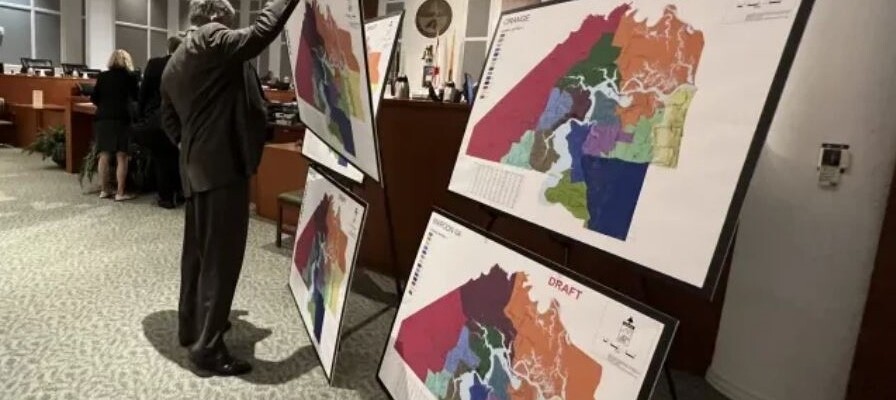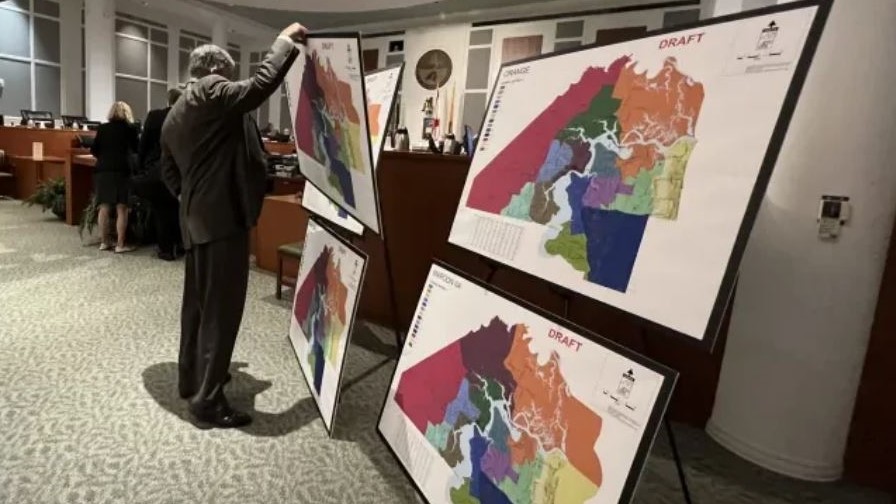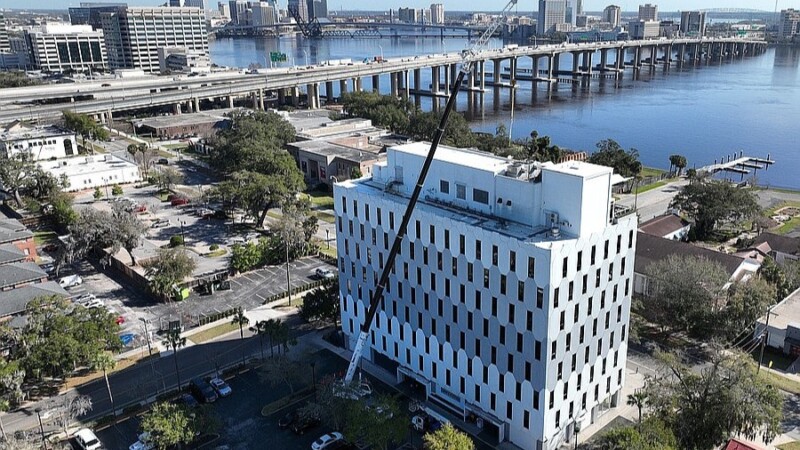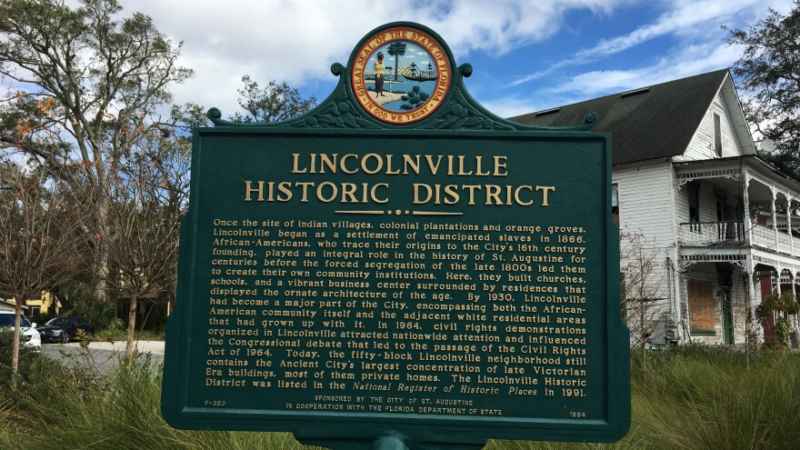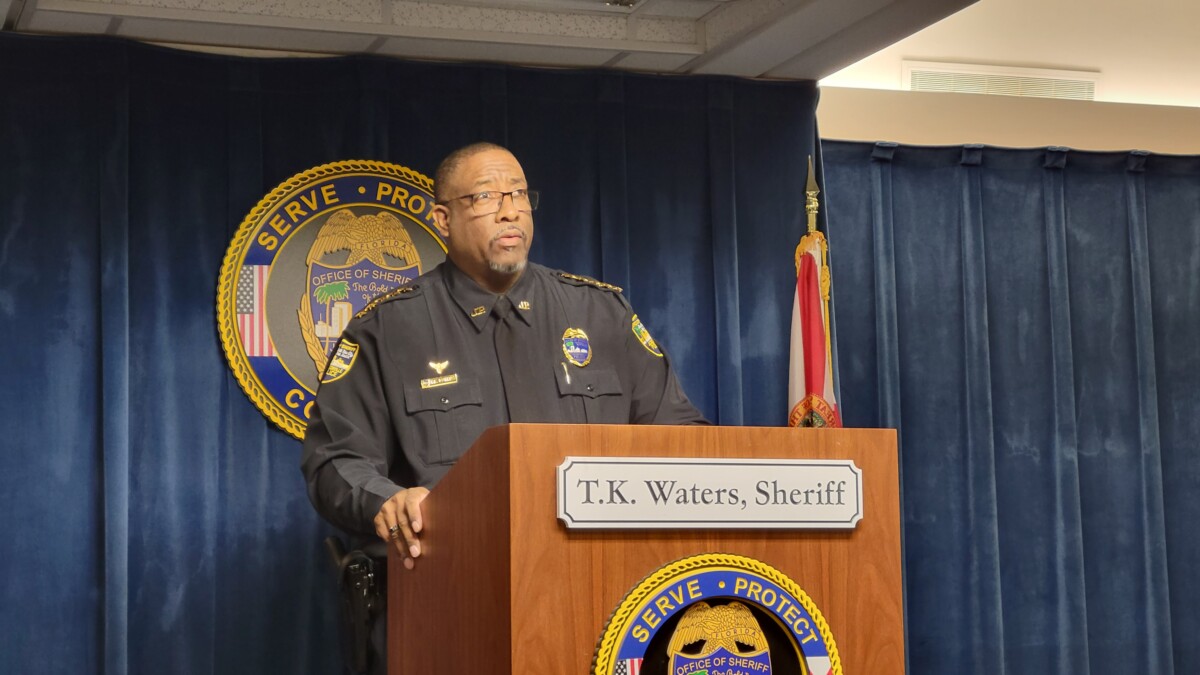The 11th U.S. Circuit Court of Appeals has rejected the city of Jacksonville’s attempt to stay a court-ordered council district map.
The federal appeals panel, in a 2-to-1 decision, upheld U.S. District Judge Marcia Morales Howard’s order requiring the city to use City Council districts drawn by plaintiffs in the federal redistricting case.
That means the March 21 elections, when all 19 City Council seats are up for election, will continue under that map. The deadline to file for the election and qualify is next Friday.
Howard previously ruled the city had unconstitutionally segregated voters on the basis of race, and after the city tried to pass new maps, she found that the city had not fixed the problem. Instead, she ordered the city to use new maps drawn by the plaintiffs, who include the Jacksonville Branch of the NAACP, the Northside Coalition of Jacksonville and other civil-rights organizations and voters.
Ben Frazier, president of the Northside Coalition, praised the court’s ruling.
“We are pleased the Court of Appeals agreed with the district court’s ruling to reject the City Council’s unfair and deceptive attempt to limit Black voting power in Duval County,” he said in a statement. “This decision means Jacksonville will vote under fair maps this March. We look forward to proving our full case at trial and securing a full remedy to put these unconstitutional maps behind us once and for all.”
The Duval County County Party released a statement saying: “This ruling is a win for voters and for fair elections in Jacksonville. While City Council has spent valuable legislative time and taxpayer dollars attempting to suppress the vote, the court has stepped in to protect the rule of law. With the council map now solidified, we look forward to fair and equitable city elections in 2023.”
City Council President Terrance Freeman said the council was committed to following the law.
“Throughout this process, the City Council has followed the guidance provided by our legal counsel,” he said in a statement. “We have worked tirelessly, in a transparent manner, to bring resolution to this matter and to ensure residents of the City are adequately represented in the configuration of Council and the School Board districts.”
The federal ruling noted the city’s motion asked the court to stop the plaintiffs’ map and instead allow the city to use its own remedial map that had never become effective.
The city’s ordinance for its proposed remedial plan had said it would become effective only “upon being deemed constitutional” by Howard, something she declined to do. The appellate court said it was inappropriate for an appellate court to respond to a request for a stay by declaring a new map constitutional.
“In order for the proposed interim remedial plan set out in Ordinance 2022-800-E to go into effect, we would have to do more — much more — than simply stay the district court’s order,” the judges said. “We would have to hold on the merits that the City Council’s proposed interim remedial plan is constitutional. Such a determination would be a ruling on the merits of the City’s appeal, and an order on a motion for stay pending appeal is not a resolution of the appeal itself.”
U.S. Circuit Judge Kevin Newsom wrote the dissenting opinion, saying he thought the City Council could “easily remove” the conditional language from the ordinance.
But in fact, the City Council would’ve had to hold an emergency meeting, which usually requires a delay so that it can file a meeting notice under Florida law, and then it would have likely needed 13 votes to pass an emergency ordinance.
The Duval Supervisor of Elections had said it needed a final decision on a map by Friday.
Newsom also claimed the city tried to protect only one incumbent. In fact, the City Council said during its redistricting process it tried to protect every incumbent, and even some candidates, from being drawn into districts together.
U.S. Circuit Judges Charles R. Wilson and Adalberto Jordan said the city had failed to show it would likely succeed at overturning Howard’s decision.
But Newsom disagreed, saying “so far as I can tell, there is little (if any) evidence that racial considerations ‘predominant[ly] motivat[ed]’ the makers of the remedial map.”
This decision is the fifth time the city has lost in the federal redistricting case. First, the court found the city had segregated voters by race in its initial City Council map. Then the city unsuccessfully tried to stay that decision, twice. Then the court found the city’s remedial map had failed to fix the problems with the first map. Now a federal appeals court has again rejected the city’s attempt to stay the decision.
The city could still ask the U.S. Supreme Court to weigh in, but that would delay a final decision beyond Elections Supervisor Mike Hogan’s proposed deadline.
The court-ordered map came as part of a preliminary injunction, but the case is still moving forward with a trial likely later this year. That trial could lead to even more wholesale changes to the map if plaintiffs succeed.
For example, the plaintiffs had submitted three possible maps to the court, and the court selected the one that adhered closest to the City Council’s stated redistricting priorities. The plaintiffs have said they would have preferred the court choose one of the other two maps.
This story is published through a partnership between Jacksonville Today and The Tributary.
9(MDEwNzczMDA2MDEzNTg3ODA1MTAzZjYxNg004))

